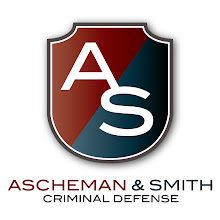We are happy to anounce that we have a new Bar Time Trivia card coming out. These will be dropped off at a few select bars in the Twin Cities. If your Bar is not selected, I hope that you still take the chance to check out the trivia questions listed below.
1.What author lived in the Jamaican estate Goldeneye?
2.Where did the term “Mind your P’s and Q’s” come from?
3.The longest bar in the world is 684 feet long, where is it located?
4.Who was elected President of the U.S. on a pledge to end National Prohibition?
5.What is the official spirit of the United States, by act of Congress?
6.The Indian cobra is the 15th deadliest snake in the world; the top 14 may be found in what country?
7.Atomosophobia is the fear of atomic explosions, What is the name for the fear of alcohol?
8.Can you name 5 T.V./Movie stars who were all former bartenders?
9.Where did the term “Honeymoon” come from?
10.Where and when did the melody for the Star Spangled Banner originate? (Hint: B.C.)
11.What are the top two Constitutional Rights, most people forget to use when arrested by the police?
Driving which of the following can result in a DUI arrest in MN:
a)Car
b)Boat
c)Snowmobile
d)Motorcycle
e)Bicycle
f)Horse
g)Wheelchair
h)La-Z-Boy
1.The rich want it, the poor have it, and if you eat it, you’ll die. What is it?
2.Though in theory I am always behind you, I am also around to remind you, if it’s your way to give me too much say, I can hamper or, even worse, blind you. What am I?
3.You must keep this thing, its loss will affect your brothers. For once yours is lost it will soon be lost by others
The Answers:
1) Ian Fleming
2) In English pubs drinks are served in pints and quarts. In old England, bartenders would advise unruly customers to mind their own pints and quarts. It's the origin of "mind your P's and Q's."
3) The longest bar in the world is 684 feet (or about 208.5 meters) long and is located at the New Bulldog in Rock Island, Illinois.
4) Franklin Roosevelt was elected President of the in 1932 on a pledge to end National Prohibition.
5) Bourbon is the official spirit of the United States, by act of Congress.
6) Australia
7) Methyphobia is fear of alcohol
8) Tom Arnold, Sandra Bullock, Chevy Chase, Bill Cosby, Kris Kristofferson, and Bruce Willis are all former bartenders.
9) In ancient Babylon, the bride's father would supply his son-in-law with all the mead (fermented honey beverage) he could drink for a month after the wedding. Because their calendar was lunar or moon-based, this period of free mead was called the "honey month," or what we now call the "honeymoon."
10) The national anthem of the US, the "Star-Spangled Banner," was written to the tune of a “drinking song” at a London gentleman’s club. This song was actually a Greek song from the 6th century B.C.
11) The right to remain silent, and the right to an attorney. Although most people know these rights, they fail to use them. If your arrested don't talk to the nice friendly officer. Tell her you want your attorney. Put us in your cell phone now, don't waste time trying to find one if it happens. Better to have us and never need us.
Driving which of the following can result in a DUI arrest in MN:
a) Car, Yes,
b) Yes, boating while under the influence can get you arrested. The Water Patrol and DNR are looking for the signs of intoxicated boaters. There are several things you should do if stopped for boating while intoxicated. One of the first is to call us.
c) Yes, similar to boating, you can be charged with a DWI for operating a snowmobile while intoxicated.
d) Motorcycle, Yes
e) Although there are no prominent cases in Minnesota, people have been arrested for biking while intoxicated in other states.
f) Horse? No reports in Minnesota, but as we have mentioned in previous blog posts, it does happen.
g) Wheelchair? Likely, although no reports of receiving a DUI from a wheelchair have been reported in Minnesota. Arrests have been made in Georgia and Wisconsin.
h) Yes, although the La-Z-Boy was modified to include a lawn mower engine.
Brain Teaser Answers:
1) Nothing (that’s the answer)
2) The Past
3) Your Temper
We hope you enjoyed the Bar Time Trivia. Keep us in mind if you need a legal help.
(B) 612.217.0077 (C) 651.280.9533 (F) 651.344.0700


